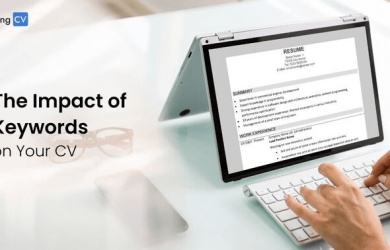Are you planning to resign from your job? Explore our comprehensive collection of resignation letter templates designed to ease your transition. It’s a big step and knowing how to write a proper resignation letter is key. Here’s a straightforward guide to help you leave on a positive note.
Starting the Process
Firstly, it’s important to talk to your boss. A face-to-face conversation shows respect and professionalism. Afterwards, you’ll need to write a resignation letter. This letter should state your last day of work, so check your contract for the notice period.
Keeping it Simple and Positive
Your resignation letter doesn’t need to be long. It should simply state that you’re resigning, mention the good experiences and learning opportunities you’ve had, and express gratitude. Avoid anything negative – this is your chance to leave a lasting, positive impression.
A Handy Template
To make things easier, here’s a basic template. It covers all the essentials:
- Start with the current date and your company’s address.
- Keep a professional and polite tone, regardless of your reasons for leaving.
- Thank your employer for the opportunities provided.
- Offer help during the transition.
Sample Resignation Letter Template
1. Resignation for a New Opportunity
Mention your new role and express your enjoyment of your time at the company. Offer assistance in the transition.
Dear [Manager’s Name],
I am writing to formally notify you of my resignation from the position of [job title] with [company name]. In accordance with my notice period, my final day will be 2024.
I have been offered another role that will halve my daily commute and allow me to spend more time with my family outside of working hours.
I have thoroughly enjoyed my time at [company] over the last [years and months of service] and would like to thank you for all of the opportunities I have been afforded here.
In the coming weeks before [end date], I am fully committed to providing assistance in ensuring a smooth transition.
Sincerely,
[Your Name]
2. Resignation with Advance Notice
Inform them of your decision well in advance. Express gratitude for the learning and growth opportunities.
Dear [Manager’s Name],
I am writing to inform you of my decision to resign from [company], effective 2024. I understand that transitioning a new person to the role of [position] will take some time and I would like to provide as much notice as possible.
During my time at [company], I have learned a lot and grown professionally. Thank you for all of your guidance and support during my employment.
Please feel free to contact me with any questions about the projects I have been working on. I am happy to help in any way I can with the transition process.
I wish you all the best for your continued success.
Sincerely,
[Your Name]
3. Resignation for a Role Not a Good Fit
Politely explain that the role wasn’t what you expected and offer to help with a smooth transition.
Dear [Manager’s Name],
I am writing to formally notify you of my resignation from the position of [job title] at [company name]. My last day with the company will be 2024.
During my time at [company name], I have come to realize that the scope of the role is unfortunately not what I had anticipated and as such, I would like to explore other opportunities.
Thank you for understanding, I truly appreciate all the support and guidance you have provided in the time I have worked for the business.
Please let me know how I can help to support a smooth transition over the next [notice period in weeks].
Sincerely,
[Your Name]
What Comes Next?
If you want more information, our article ‘How to Write a Resignation Letter’ has additional tips and advice.

Benefits of a Resignation Letter
A well-written resignation letter is professional and creates a paper trail. It’s useful for formal notice requirements and legal records.
Closing Your Chapter Professionally
A clear, concise resignation letter is a must. It ensures a smooth transition and maintains good relations with your former employer.
Crafting the Right Letter
Your letter should include:
- A statement of resignation.
- Your last day at work.
- An expression of gratitude.
- Optional: reason for leaving and offer to assist with the transition.
- Your contact information and professional closing.
What Not to Include
Your formal notice or resignation letter is not the place to air grievances or complaints. You may want to outline the context surrounding your decision to resign, but don’t try to include all the details. Here’s what to keep in mind when deciding what stays and what goes:

Negative comments about colleagues or the company:
Avoid putting any negative remarks into writing. These comments can damage professional relationships and often do more harm than good.
Too much detail about personal grievances:
There’s a time and place for everything. While you won’t have to pretend everything is great in your formal notice, you also don’t want to go into detail about negative experiences.
Confidential or sensitive information:
Your professional resignation letter is not the place to disclose information you know you can’t share. Treat it as any other company communication.
Keep in mind that resignation letters can be kept on file and can be read by multiple people. Save the hard stuff for face-to-face conversations.
When to Send Your Letter
Timing is crucial when it comes to submitting your resignation letter. Knowing when to send it can have a significant impact on your transition out of your current job and your professional reputation. In this section, we’ll explore the ideal moments and considerations for sending your resignation letter to ensure a smooth departure from your current position.
You’ve Been Employed for Several Years
This one is for those of you who are pleased with your experience over the years of your employment.
Before submitting your resignation letter, tick everything off your to-do list to make sure you leave no loose ends. So that means cleaning up your desk, completing all the tasks that won’t be carried over until the next term, etc.
This makes the transition process easier for both you and your employers.
You can also project a graceful tone of voice and let them know you’re thankful for having had the opportunity to work for them.
You’ve Had a Negative Experience
On the other hand, not everyone has a positive experience during their time of employment.
If you’re leaving because of a problem inside the company, it’s good to address this in your letter of resignation. At the very least, you’re giving them feedback to improve their work conditions in the future.
There are ways to express your disappointment or frustration professionally. Let your manager know too that you’re open to discussing these issues further if necessary.
You Just Want to Quit Your Job
Some of you might not fit into any of the 2 categories above. All you simply want to do is quit your job for your own personal reasons.
In this case, you can keep your letter short and politely notify employers of your resignation.
As mentioned, there’s no need to state your reasons. The more important factor is that you write out your letter appropriately and give them notice ahead of time so that they’re better prepared to fill the gap when you resign.
Conclusion
A resignation letter is more than a formality. It’s an opportunity to leave your current role on good terms and maintain professional relationships. Follow these guidelines to write a letter that reflects well on you and supports a smooth transition.
Frequently Asked Questions
-
Should I include reasons for resigning in my resignation letter?
It’s not mandatory, but you can tactfully mention general reasons if comfortable. Focus on maintaining a positive tone.
-
Can I use a resignation letter template if I’m leaving due to dissatisfaction with the company?
Yes, templates offer a professional format regardless of reasons. Emphasize professionalism and gratitude.
-
Are there resignation letter templates for part-time or contract positions?
Yes, templates are adaptable to various employment types, including part-time roles and contract positions.
-
“What if I need to resign immediately? Do templates accommodate urgent resignations?
Absolutely, templates can be adjusted to address immediate resignations while maintaining a respectful tone.
-
Do resignation letter templates include guidance on handling exit interviews or discussions with HR?
Some templates offer brief guidance on handling exit interviews professionally but focus primarily on the resignation letter format.





